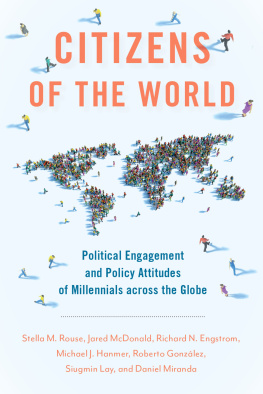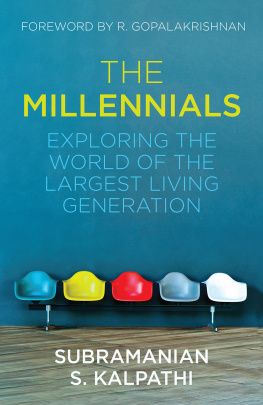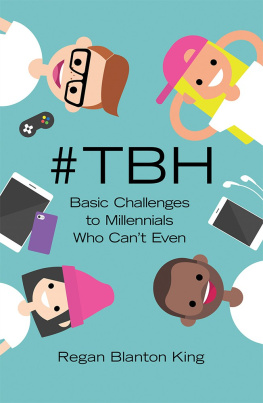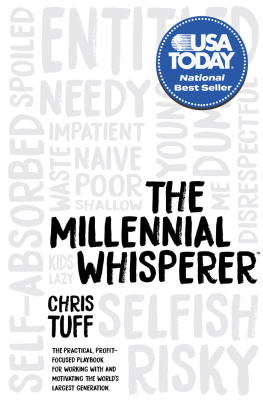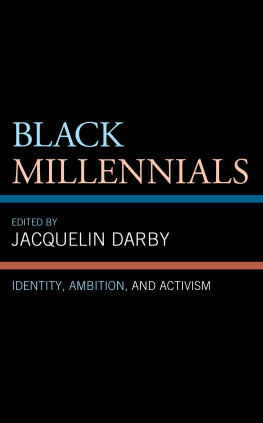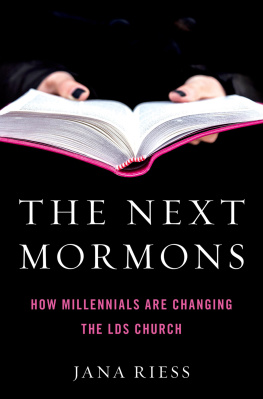Citizens of the World

Oxford University Press is a department of the University of Oxford. It furthers the Universitys objective of excellence in research, scholarship, and education by publishing worldwide. Oxford is a registered trade mark of Oxford University Press in the UK and certain other countries.
Published in the United States of America by Oxford University Press
198 Madison Avenue, New York, NY 10016, United States of America.
Oxford University Press 2023
All rights reserved. No part of this publication may be reproduced, stored in a retrieval system, or transmitted, in any form or by any means, without the prior permission in writing of Oxford University Press, or as expressly permitted by law, by license, or under terms agreed with the appropriate reproduction rights organization. Inquiries concerning reproduction outside the scope of the above should be sent to the Rights Department, Oxford University Press, at the address above.
You must not circulate this work in any other form and you must impose this same condition on any acquirer.
Library of Congress Control Number: 2022029522
ISBN 9780197599389 (pbk.)
ISBN 9780197599372 (hbk.)
ISBN 9780197599402 (epub.)
DOI: 10.1093/oso/9780197599372.001.0001
Contents
The COVID-19 pandemic and protests against police brutality have highlighted both the unique hardships the Millennial Generation continues to face as well as its prominence in a burgeoning international movement for social justice. Both of these events underscore a cultural generation gap that is rooted in such factors as diversity, formative events, and technological developments (among others). Why is it important to study the Millennial Generation? What are this generations political, social, and economic attitudes, and how will these attitudes, compared to those of older adults, influence democratic governance around the world?
Today the Millennial Generation, the age cohort born between the early 1980s and the late 1990s, is the most educated, digitally connected, and globalized in the history of the world. In a number of countries, Millennials are the largest generational cohort. In the United States, the Millennial generation exceeds one-quarter of the population and is the most diverse in American history (). Around the world, the Millennial Generation encompasses 1.8 billion people (a quarter of the worlds population) and will soon produce a majority of the political, economic, and social leaders.
It is thus not surprising that social commentators, concerned about how society is changing and how it will continue to change, have placed an emphasis on understanding the Millennial Generation. This cohort generally does not remember the pre-internet world and has had access to computerized communication systems and communities for virtually their entire lives. Social critics wonder how this group of potential leaders and decision-makers will integrate into institutions created by generations accustomed to very different forms of interactions: institutions that move more slowly, function under the assumption that individuals have less access to immediate information, and delegate decision-making and action to others who are expected to negotiate the details.
Generational theorists have found that generational cohorts can form a core persona based on their shared experiences and interests ( argue that a political generation, one that mobilizes to implement change based on their shared preferences, has the potential to align institutions and policies to their values.
Of course, not all generations have equal interests or experiences. The Silent Generation, those born between the Great Depression and the start of World War II, was famously interested in pragmatic solutions and working within the system, as opposed to leading social change (). It is also the case that a generational frame can describe only a generational cohorts central tendencies, as not all members of the generation conform to the groups worldview. Whether the Millennial Generation makes its mark as an agent of lasting political and social change depends a great deal on the extent to which there is a common core of values and preferences, how widely those preferences are shared, and members collective interest in participating in public life to a degree that will influence future institutions and policies.
In this book, we argue that Millennials indeed share a core persona. Millennials grew up experiencing the terrorist attacks of September 11 and the subsequent and yet to be interrupted war on terror. The global proliferation of the internet and smartphones ). The Millennial Generation will increasingly be in leadership positions during an era of rapid change and uncertainty, shaped by factors such as the global pandemic, economic hardship, demands for racial justice, and the retrenchment of the United States from the global stage. Simply put, making sense of what is to come requires a deeper understanding of what defines the Millennial Generations persona, their attachment to various identities, how they perceive the need for change, and the tools they will use for enacting that change.
This book explores the political attitudes and behaviors of Millennials relative to older adults across eight countries: Australia, Chile, Mexico, New Zealand, South Africa, South Korea, the United Kingdom, and the United States. This list is by no means exhaustive, but it is diverse in a number of ways, allowing us to identify the extent to which attitudes and behaviors are common across borders formed by land and sea. We anchor our discussion in politics, but our intent is to speak to a broad range of issues that motivate scholars across disciplines to investigate further. Our focus is on a traditional versus an emerging global identity and how news consumption shapes political attitudes, civic engagement, public service motivation, and the general belief in ones ability to bring about political change. We find that Millennials are unique in a variety of ways, with important implications for domestic and international politics.
What Do We Know about Millennials?
Reports have given accounts of how Millennials are significantly slower to marry (). These trends may indicate a change in how Millennials relate to social institutions and cultural benchmarks. They may also be an artifact of the more challenging economic environment that Millennials encountered when entering the workforce. Fewer high-paying jobs, recent economic downturns, student debt, and rising housing costs likely factor into the decision not to take on long-term responsibilities and expenses regardless of any attitudinal change. Yet the economic environment in which Millennials were socialized may have itself caused long-term attitudinal change, differentiating Millennials from older age cohorts. In line with research on Millennials in the United States, we show that the tumultuous times in which Millennials around the world have grown up and entered adulthood have indeed shaped the ways in which they view politics and society.
Millennials were born during the longest period of economic growth in the twentieth century but entered the job market in the worst recession since the 1930s (). The experience of graduating into recessions and tight job markets with relatively high loads of debt is shared among many Millennials and likely influences how they make life choices that are different from those made by older generations.

